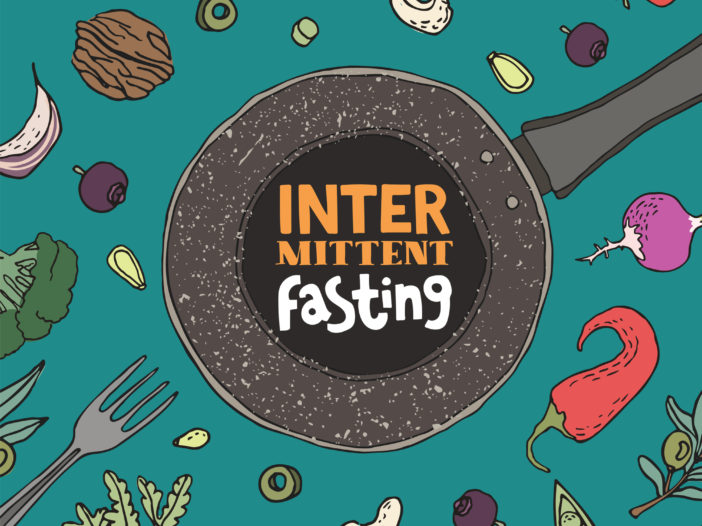
Time restricted eating (TRE) is a form of intermittent fasting and has become extremely popular in recent years. It has been shown to be effective in a number of studies for weight loss and reducing the risk of diabetes, as well as having a number of overall health benefits for women in their midlife years. Although it is a bit of a buzz word right now, it certainly isn’t a new concept. Our ancestors certainly fasted a great deal: This is because they did not have the availability of food at their fingertips like we do today.
And it is certainly something worth considering for women transitioning through the menopause. This is particularly relevant if you’re struggling with weight gain, fatigue and insulin resistance.
Read on to find out my tips for doing it right
But first, what is time restricted eating?
A time restricted eating plan does what it says on the tin. It restricts the amount of time you can spend eating. All meals need to be consumed within a specific window of time each day. This can range from 6 to 12 hours per day. Outside of these times, you fast and drink only water to stay hydrated. Many people find this approach a lot easier than the 5:2 diet which received a lot of publicity over recent years as it does not mean that calories have to be reduced over an entire day. Without a doubt, it’s certainly a more sensible approach for menopausal women who are experiencing a number of different hormonal fluctuations. And that’s because a whole day without food would provide an additional stress to the body. And this is something which peri and menopausal woman really don’t need!
So, what are the benefits?
Weight loss
Time restricted eating (intermittent fasting) encourages the body to burn fat. This is because when you are fasting, your body lowers insulin levels . And this encourages fat to be released from storage so that it can be used for energy rather than the sugar it normally relies on. This can be particularly helpful for menopausal women who often struggle with stubborn fat particularly around the middle
Improved insulin sensitivity
Again, this is particularly helpful for women going through the menopause. Oestrogen has a role in optimising oestrogen sensitivity. And so, when levels decline, it is quite common for women to find it difficult to manage sugars/carbohydrates in their diet. And this can lead to insulin resistance and an increased risk of heart disease and diabetes. But when you reduce your eating window, insulin sensitivity improves, and you are better equipped to process sugar and carbohydrates.
Reduction in brain fog
Anxiety, depression, mood swings and brain fog are common symptoms of the menopause. And studies have shown that fasting improves mental clarity and can help with self-esteem, depression and stress levels.
Time restricted eating is easy to do!
If you are interested in trying time restricted eating, there are only a few rules. Try and go for at least 12 hours without food or drink (with the exception of water and herbal teas). An easy start is to eat dinner at 7 pm and breakfast at 7 am. By eating dinner early, you may find it easy to stretch the time without food to 16 hours and have breakfast at 11 am.
If you are starting out for the first time, start slowly. And gradually increase the fasting time until you reach a pattern that you are comfortable with.
Time restricted eating doesn’t give you the green light to eat whatever you want!!! Remember to focus on healthy foods such as lots of vegetables, lean proteins, whole grains and healthy fats. Avoid processed foods and keep an eye on the portion size.
Don’t forget to stay full hydrated. Drinking adequate water can also help you to feel fuller during fasting periods.
Try and keep active. Many people snack through boredom rather than hunger, so try and occupy yourself with a new hobby or interest.
And most importantly – listen to your body
Your body is very good at telling you what you need. And if you are not feeling great, you may need to re-evaluate what you are eating to ensure that you are getting adequate calories and the right nutrients in your diet
Although many people enjoy and benefit from this form of fasting, it is not for everyone. It does put a little stress on your body and so if you have a chronic illness or struggle with your adrenal health, it may not be the right approach for you. In addition, it is not suitable for people with high blood pressure, sub optimal thyroid function or heart conditions.
And it is also not a sensible approach if you don’t have a great relationship with food, have an eating disorder or are underweight. This is because fasting can set you up to obsess about the food you can eat after the fasting period and may send you down a dangerous bingeing path which may lead you to impose an even harder restrictive window.
Do drop me a line if you are interested in understanding more about TRE and want to know whether it is right for you. It is certainly worth getting guidance before you embark on any sort of programme that involves a period of fasting during your peri and menopausal years. But it may just be what you need to shift that stubborn weight and improve your sensitivity to insulin.
